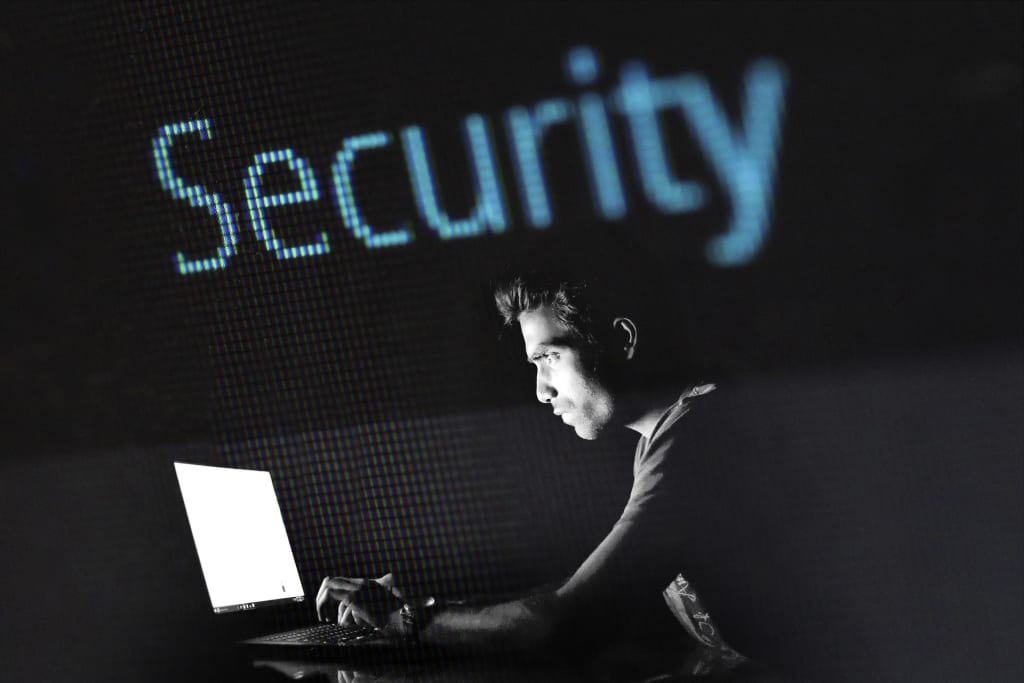The Illusion Of Privacy In A Surveillance Economy
Are you and your data safe online?

Unless you’re a newborn, your personal data is littered all over the web. Even if you don’t see it on your timeline or profile, it is still out there, somewhere in the ‘cloud’. However, as they say, there is no ‘cloud’, it’s just someone else’s computer. Trying to scrub all your personal data from the Internet is a Sisyphean task. In Greek mythology Sisyphus or Sisyphos was the king of Ephyra. He was punished for his self-aggrandizing craftiness and deceitfulness by being forced to roll an immense boulder up a hill only for it to roll down every time it neared the top, repeating this action for eternity.
You don’t even need to own a mobile phone or carry one on you for your personal information to get out there. Just a simple trip to the grocery store down the road will have your face digitized. The shop owner is rightly doing what he needs to in order to secure his own assets and employees. He does this, though, at the expense of the right to privacy of a person who is not in any way, shape or form a threat, but just wants a loaf of bread. If you pay for your loaf of bread with a card, your face is now linked to a card. Most current bank cards have the holders full name and surname on the front. Even if it doesn’t, the card is linked to your name, and can be used to discover it and other information, such as your postal address, phone number, etc. So in two simple steps, that are in no part your fault nor the fault of your friendly grocer, two key personal details about you are now digitized. And you have no idea where they will end up.
Data Breaches By The Numbers
The first six months of 2019 saw more than 3,800 publicly disclosed breaches exposing an incredible 4.1 billion compromised records — a 54% increase over the preceding four years.
In 2016, 95% of breached records came from the government, retail, and technology. Currently, a cyberattack occurs every 39 seconds and by 2021, it is estimated that a business will fall victim to a ransomware attack every 11 seconds. It takes, on average, 7 months to identify a breach and around two and a half months to contain a breach.
With 90% of malware coming from emails and only 5% of a company’s folders are said to be protected, company-wide changes have to be implemented to improve overall security behavior. In the rapidly evolving field of data security, it’s vital that business owners stay informed of all potential issues.
The Difference Between Security And Surveillance
According to top secret documents leaked by ex-NSA contractor Edward Snowden, which he obtained whilst working for Booz Allen Hamilton, one of the largest contractors for defense and intelligence in the United States, the United States National Security Agency (NSA) and its international partners are supposedly involved in mass global surveillance. This intelligence alliance comprises Australia, Canada, New Zealand, the United Kingdom and the United States. If all of this is true, it paints the US as hypocritical in the wake of it’s Huawei ban, on the pretext that the company’s hardware and software is used by the Chinese government for spying. Data is not only being monetized, it is being weaponized and politicized.
Using our local grocer example, the concern is that information collected for one purpose (securing one’s business) is used for something entirely different. Surveillance serves three specific purposes: to find out who you are, what you do, and how you think. Security or privacy means that you have control over your personal information and that who you are, what you do, and how you think can never be used to harm you, manipulate you or cause you anxiety.
Here Are Some Thoughts
It’s long been said that if the program, app or online service you are using is free, then you are probably the product that is being sold. Many apps and services on your phone don’t need the permissions they request nor the data they access to function, but they are collecting it anyway. If you own an Android, go to your Apps settings and check your permissions. You will notice that almost all apps on your phone request Camera permissions, Microphone and Telephone permissions. Things like your keyboard or music player requesting access to your camera; a document reader or radio requesting contact permissions; or the gallery / picture viewer requesting telephonic permissions are some of the things that you usually don’t notice but they should have you worried.
The Apple ecosystem is a bit more secure, but if you think that it is not susceptible, your brand loyalty may be making you naive. There is no tech ecosystem that is 100% secure. That is the reason why everyone from Microsoft, to Apple, to Google keep pushing out security patches and updates. In 2018, a 16-year-old Australian boy with ambitions of later working for Apple hacked into Apple’s mainframe, downloaded 90GB of secure internal files and accessed customer accounts. According to the boy’s lawyer he had done this on multiple occasions over a period of one year.
Even as recent as April 2020, it was discovered that Apple’s built-in iPhone mail app was vulnerable to hackers. Even if victims never saw or clicked on the malware, their phone could be taken over by sophisticated attackers.
Geoffrey A. Fowler, a Technology columnist for the Washington Post claimed that a privacy experiment he did revealed that 5,400 hidden app trackers sent reports from his iPhone to a dozen marketing companies, research firms and other personal data consumers.
Governments and tech companies should be transparent. Knowing where our data is going, is the first step to keeping it private. Privacy policies should be clear and in layman’s language, not verbose.
Anonymity, meaning “without a name” or “namelessness”, describes a situation where a person is non-identifiable, unreachable, or untrackable. In literature, the history of art, the military, legal cases, and in political dissent, anonymity was and is used in some way, shape or form. If users can use VPNs and other such technologies to protect themselves, it means that tech companies have the ability to and should carry the responsibility to implement these technologies by default.
On the other hand, most devices or services have a password that never expires. This means that if you don’t forget it, in most cases you will never change it. Current Android phones are now prompting you to input your pin or password every 72 hours so that you may not forget it. I think this is worse. Rather, it should be prompting you to change it, let’s say every two months or so.
After everything has been said, chances are, security, privacy and anonymity issues are likely not to be resolved any time soon nor will they get better. If you don’t want to go off the grid and become a hermit, the best you can do in the meantime is to ensure that what’s out there is at least an accurate description of who you are, what you do and what you think.
About the Creator
ffffffffgsffffffffffffffffffffffhhhtwtyrqtrefgftttthwh6hw
dgbfb dg e G TE tabqntq4 steqtbt443 353





Comments
There are no comments for this story
Be the first to respond and start the conversation.